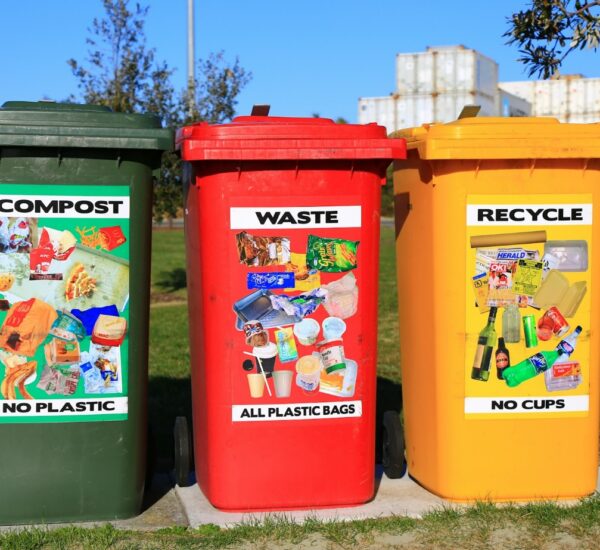USEPA, Environmental Protection Administration Taiwan (EPAT), and the Vietnam Environment Administration (VEA) co-hosted the fourth annual meeting of the International E-Waste Management Network (IEMN) from July 14-17, 2014 in Hanoi, Vietnam.
In addition to officials from Vietnam, Taiwan and the United States, representatives from Thailand, Malaysia, Indonesia, Japan, Colombia, Argentina, El Salvador, Brazil, Nigeria, Costa Rica, Egypt, Canada, Mexico, Washington State and California joined the meeting.
The IEMN meeting focused on:
2) Presenting ESM examples from the Department of Ecology in Washington State, the Department of Toxic Substances Control in California, as well as from Canada, Mexico and other countries;
3) Allowing for participants to discuss approaches to promoting ESM of e-waste in their respective locations, such as stages of voluntary and mandatory efforts; and
4) Exchanging the latest updates related to e-waste management in the countries and locations represented by meeting participants.
Participants confirmed their commitment to continuing the network and sharing updates through quarterly teleconferences and annual meetings. Representatives offered to share additional information on financial structures and incentives from the countries and locations represented by the IEMN. Participants also expressed interest in continuing to learn about ESM in greater detail, as well as about how to recycle difficult-to-manage wastes such as mercury-containing lamps.
Third Annual IEMN Meeting (2013)
IEMN participants visit California Electronic Asset Recovery.
The 3rd annual meeting of the IEMN (formerly the GEM Network) took place in the United States in July 2013. The meeting was organized by USEPA and EPAT and hosted by CalEPA in Sacramento and USEPA Region 9 in San Francisco. Participants joined from Vietnam, Thailand, Malaysia, Indonesia, Japan, India, Ghana, Nigeria, Colombia, Argentina, El Salvador, and Brazil. This year’s IEMN sessions featured the e-waste management experiences of U.S. states, with a specific focus on California, Minnesota and Oregon.
 IEMN participants engaged in direct dialogue with state officials about how state e-waste programs were developed, where they have been successful, and what challenges lie ahead. Network members also heard from companies and organizations that work on e-waste management in the United States. Non-governmental organizations, certifying bodies and auditors for third-party recycler certification programs, third-party certified recyclers, ansd manufacturers were represented. The IEMN also visited third-party-certified e-waste recyclers in California.
IEMN participants engaged in direct dialogue with state officials about how state e-waste programs were developed, where they have been successful, and what challenges lie ahead. Network members also heard from companies and organizations that work on e-waste management in the United States. Non-governmental organizations, certifying bodies and auditors for third-party recycler certification programs, third-party certified recyclers, ansd manufacturers were represented. The IEMN also visited third-party-certified e-waste recyclers in California.
Participants exchanged the latest updates about e-waste management in their own economies, a regular feature of IEMN meetings. These updates were moderated by EPA’s Assistant Administrator for International and Tribal Affairs, Michelle DePass. In addition, EPA’s Deputy Assistant Administrator for Solid Waste and Emergency Response, Lisa Feldt, presented the U.S. National Strategy for Electronics Stewardship. Other EPA presenters shared the recent results of projects under the Strategy.
At the end of the meeting, participants identified priority topics and activities as next steps. The IEMN will continue sharing information on an ongoing basis and through quarterly discussions. The next IEMN meeting will be in Asia in 2014.
International WEEE Management Workshop (2012)
The IEMN Network at the 2012 International WEEE Management Workshop, with EPAT Minister Shen and AIT Director Marut.
The October 2012 International WEEE Management Workshop was a week-long meeting in Taipei that focused in-depth on Taiwan’s system for recycling WEEE, called the 4-in-1 Recycling Program.
This WEEE Management Workshop was a follow-up to the first international meeting on WEEE that EPA and EPAT co-hosted in June 2011. Participants joined the workshop from Vietnam, Malaysia, Indonesia, Japan, Thailand, the Philippines, India, Colombia, El Salvador, Trinidad and Tobago, Brazil, Argentina, Nigeria, and Ghana.
The workshop also featured guest speakers who shared the status of WEEE management in USA, Japan, Singapore and Korea. At the conclusion of the 2012 meeting, the participants decided to form the International E-Waste Management Network (IEMN) in order to exchange information on an ongoing basis.
Some of the highlights of that workshop included:
- EPAT staff presented the development and implementation of the 4-in-1 Recycling Program, including the environmental problems that led EPAT to implement mandatory recycling.
- During site visits to local recycling, collection, and sorting facilities, EPAT and facility staff demonstrated how recyclers in Taiwan implement environmental and worker protections, how the entire 4-in-1 Program (including financial management) is audited, how waste sorting takes place at the community level, and how individuals can sell recyclables to private collectors.
- Throughout the workshop, participants shared the latest developments on WEEE management in their respective countries.




